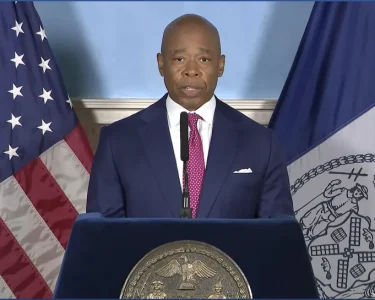Introduction
In a bold and contentious announcement, former President Donald Trump vowed to declare a national emergency and deploy the military to facilitate mass deportations if re-elected. This statement has sparked intense debate, highlighting deep divisions in U.S. politics. From legal concerns to humanitarian implications, the announcement raises pressing questions about the future of immigration policy in America.
What Does Declaring a National Emergency Mean?
Legal Framework of National Emergencies
Declaring a national emergency grants the President expanded powers to address pressing issues. In the context of immigration, it could mean reallocating resources, bypassing standard legislative processes, and implementing drastic measures.
Historical Precedents in U.S. History
National emergencies have been declared for various reasons, from natural disasters to terrorist threats. However, using it to enforce mass deportations marks an unprecedented move, intensifying debates on its appropriateness.
The Plan for Mass Deportations
Trump’s Vision and Strategy
Trump has outlined an ambitious strategy, framing immigration as a national security threat. This includes expedited removals and bypassing lengthy legal processes.
The Role of the Military in Immigration Enforcement
While the military traditionally focuses on external threats, its involvement in immigration enforcement could redefine its role, sparking debates on militarization and civil liberties.
Implications of Mass Deportations
Economic Impact
Deporting millions could significantly affect industries reliant on immigrant labor, potentially leading to labor shortages and economic disruptions.
Effects on Immigrant Communities
Families and communities face the risk of being torn apart, creating long-lasting social and emotional repercussions.
Broader Social and Cultural Consequences
Mass deportations could amplify societal divisions, affecting the cultural fabric of the U.S. as a nation built on immigration.
Legal and Ethical Concerns
Challenges to Constitutional Rights
The plan raises constitutional questions, including potential violations of due process and equal protection under the law.
Humanitarian Issues and Public Backlash
Critics argue that such measures disregard basic human rights, likely leading to public protests and resistance from advocacy groups.
Comparison with Trump’s Previous Immigration Policies
Policies During His Presidency (2016–2020)
Trump’s administration previously enacted strict immigration policies, such as the travel ban and family separation practices, setting the stage for this new proposal.
The Build-Up to This Announcement
This latest plan reflects a continuation of Trump’s hardline stance on immigration, aligning with his broader political strategy.
Reactions from Political Figures and Advocacy Groups
Supporters’ Perspective
Supporters view the proposal as a necessary step to uphold national security and address illegal immigration effectively.
Critics’ Viewpoint
Opponents argue that it is a populist move designed to appeal to Trump’s base, ignoring the complex realities of immigration.
International Reactions
Perspectives from Neighboring Countries
Countries like Mexico have expressed concerns about the humanitarian and diplomatic consequences of mass deportations.
Global Impact on U.S. Relations
The plan could strain relations with allies, affecting trade agreements and collaborative efforts on global challenges.
The Political Landscape Ahead
Impact on the Upcoming Presidential Elections
Immigration policy will undoubtedly become a central issue in the elections, influencing voter preferences and political alliances.
Broader Political Polarization in America
This announcement exemplifies the growing divide in American politics, with immigration as a key battleground.
Conclusion
Trump’s proposal to declare a national emergency and use the military for mass deportations represents a pivotal moment in U.S. politics. While supporters hail it as a bold move for national security, critics decry it as a violation of fundamental rights. As the nation approaches a crucial election, the implications of this plan will shape the political and social landscape for years to come.
Stay updated on the latest developments in U.S. politics and global events by visiting our News Section. Discover in-depth analyses, breaking stories, and expert opinions.
FAQs
What is the legal definition of a national emergency in the U.S.?
A national emergency grants the President powers to address crises beyond standard legal frameworks.How does the military typically handle immigration enforcement?
The military rarely handles such tasks, as immigration enforcement is primarily the domain of civilian agencies like ICE.What has been the economic impact of deportations in the past?
Past deportations have led to labor shortages in industries such as agriculture and construction, affecting economic growth.How do international laws view mass deportations?
Mass deportations can violate international human rights laws, which emphasize protection from arbitrary removals.What are Trump’s chances of implementing this plan if re-elected?
The plan’s success depends on political, legal, and logistical factors, including opposition from Congress and the judiciary.





